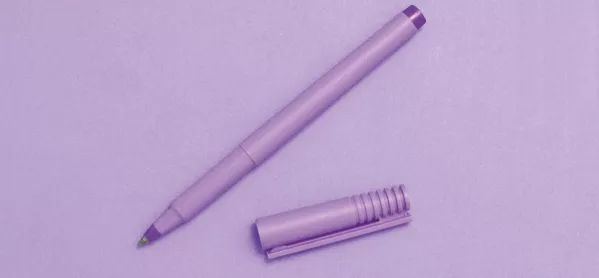I have a vague recollection from middle school of writing an acrostic poem: where the first letters of each line spell out a word or phrase. It’s always struck me as a strange sort of poetic form, but I guess it’s relatively easy to get right, so long as you can spell the main word. From the same period, I remember alliterative poetry. It can’t be the case that all we did in middle school was write poems, but alliteration we definitely did.
These days, I try to avoid teaching alliteration at all. Not because it has no use, but because it’s so easy to misuse. It is often employed in persuasive techniques, but I think it’s fair to say few of us would be convinced to buy a schoolbag just because it is described as a “brilliant bag with perfect pockets and crazy colours”.
So why are we so often taken in by alliterative nonsense in classrooms? And why do we foist it on children? Do we really presume that just because we can find an adjective that fits, somehow the idea is better? Let me disabuse you of that notion.
‘Wow’ words
There is nothing “wow” about words out of context, and we do children a disservice when we teach them that any word has more value than any other. The same goes for anyone claiming that words like “said” are “wicked words”. Words are only as good as their uses in context.
This was brought home to me recently when I realised that children often think thesauruses are used just to find “better words”. Surely the point of a thesaurus is to find a more fitting word. Yet we have somehow led children to believe that “moreover” is a better word than “also”. Or that if every character “yells”, “screams”, “replies” or “retorts”, we’ll instantly be a better writer than the likes of Rowling and Dickens who use boring old “said”.
Words are designed to convey meaning, and the only time I’ll be wowed by vocabulary is when it helps to paint just the right picture in the context. Throwing a “nevertheless” into the mix doesn’t cut it for me.
‘Stunning starts’
And you can throw “fantastic finishes” into that mix too. What exactly is the thinking behind “stunning starts”? It suggests me that we’re conceding to children that learning is essentially dull, but equally thinking that if we prefix it with playing around in some way that the rest of it becomes tolerable.
Don’t get me wrong, this is something I do. I wouldn’t be the first person to reward myself for marking 10 books with a biscuit - but think of the message that gives. If we’re equating lessons to undesirable chores, how does that convey a lifelong love of learning?
If your topic is engaging and exciting, then it does the job for itself. As soon as “stunning starts” become a thing, the children will see them for exactly what they are: a cheap stunt to entertain. You might as well stick on a DVD for every unit.
The Purple Pen of Progress
If the previous two entries haven’t already made me unpopular, this will. I’m not saying children editing their work is a waste of time; far from it. But the colour of the pen is - or, at least, should be - academic. Schools and teachers who think of adopting purple pens because they’re alliterative miss the point. Teaching children to edit their work is great; but imagining that by making it alliterative we’ve made that task any more achievable? Pure poppycock.
Michael Tidd is deputy head at Edgewood Primary School in Nottinghamshire @MichaelT1979




